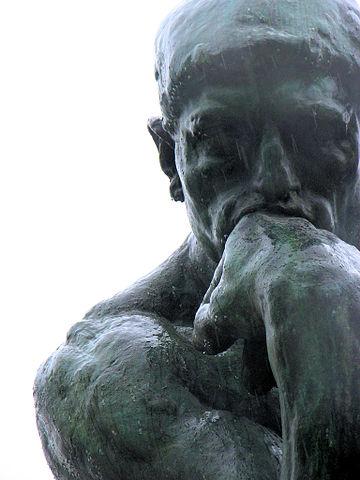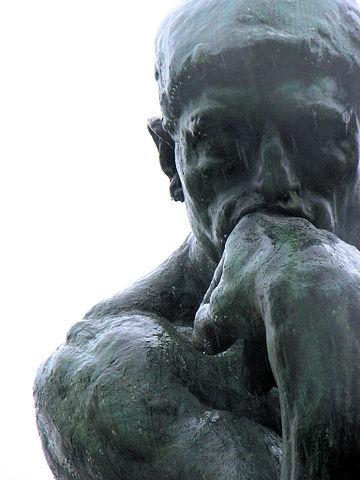
Credit: Auguste Rodin
The theory of evolution by natural selection is one of several examples of societal disputes that center on the validity of specific beliefs, where one position is backed up by logical reasoning and scientific evidence, and the other is not.
While some people rely more on reason and evidence than others when deciding on their beliefs, a new report from psychologists at the University of Illinois at Chicago and the University of Exeter suggests people can also come to see a reliance on reason and evidence as a moral issue – to see the rationality of another's beliefs as indicative of their morality.
In a project involving eight studies, the researchers developed a scale designed to quantify the extent to which people moralize rationality.
"The scale does not simply measure a strong preference for being a rational person, but a moral conviction that we all should rely on logic and evidence when we form and evaluate beliefs," said Tomas Ståhl, UIC visiting assistant professor of psychology and lead author of the study published in PLOS ONE.
"How much people moralize rationality was shown to be highly stable over time, and to go beyond the importance they attached to being rational themselves."
The findings show that people who moralize rationality judge others they see as less rational much more harshly.
"They see these individuals as less moral; prefer to distance themselves from them; and under some circumstances, even prefer them to be punished for their irrational behavior," Ståhl said. "By contrast, individuals who moralized rationality judged others who were perceived as rational as more moral and worthy of praise."
While morality is commonly linked to religiosity and a belief in God, the current research identifies a secular moral value and how it may affect individuals' interpersonal relations and societal engagement.
As an example, one study showed that individuals who strongly moralized rationality were uniquely willing to donate to, and volunteer for, a charity that sought to prevent the spread of pseudoscience and superstition in society.
In the wake of a presidential election that often kept fact-checkers busy, Ståhl says the findings would suggest a possible avenue to more productive political discourse that would encourage a culture in which it is viewed as a virtue to evaluate beliefs based on logical reasoning and the available evidence.
"In such a climate, politicians would get credit for engaging in a rational intellectually honest argument," he said. "They would also think twice before making unfounded claims, because it would be perceived as immoral."
###
The study was co-authored by Linda J. Skitka, UIC professor of psychology, and Maarten P. Zaal of the University of Exeter. Zaal's contribution to the study was funded by a Marie Curie Intra-European Fellowship.
Media Contact
Brian Flood
[email protected]
312-996-7681
@uicnews
http://www.uic.edu
############
Story Source: Materials provided by Scienmag





